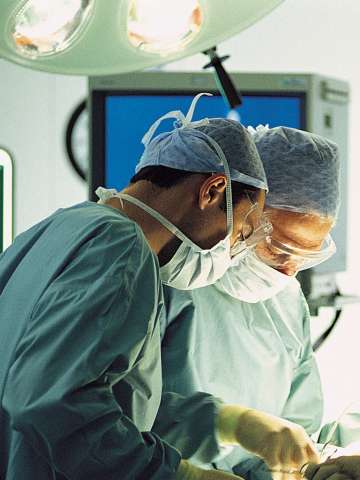Pancreas Transplant
For more than 20 years, the UCLA pancreas transplant team has been offering expert pancreas transplants for patients with diabetes and pancreatic disease.

Why choose UCLA Health for a pancreas transplant procedure?
Specialists in the UCLA Pancreas Transplant Program have more than 20 years of expertise in pancreas transplants. We work closely with experts in our Kidney Transplant Program, which is one of the most well-established, busiest programs of its kind in the world. Together, we have performed hundreds of combined kidney and pancreas transplant procedures.
Highlights of our Pancreas Transplant Program include:
Personalized care: We work with patients to understand their individual needs and build a personalized care plan. If you need more than one organ transplant, we coordinate our teams so that you see all the necessary specialists in one clinic appointment.
Multi-organ transplants: We work hand-in-hand with specialists in our Kidney Transplant Program to offer you coordinated, expert care. When needed, we can perform a kidney and pancreas transplant at the same time, so you only need one operation.
Advanced therapies: The UCLA transplant team are among the only ones worldwide who perform autologous islet transplantation, a procedure that allows us to return insulin-producing cells back into your body after removing your pancreas.
Our areas of care
Trusting your care to UCLA means that you will have access to the most advanced care possible, with all the advantages of our multi-organ transplantation expertise.
We provide a few types of pancreas transplant procedures. Our areas of care include:
Pancreas transplants for diabetes: We offer pancreatic transplants for patients with certain types of diabetes. A pancreas transplant can allow patients with type 1 diabetes to stop depending on insulin, and live without the negative or dangerous side effects of diabetes. We have performed more than 250 pancreas transplants for diabetes.
Auto islet cell transplant: Sometimes, patients with pancreatic disease still have functioning insulin- and enzyme-producing cells that aid with digestion and blood sugar regulation, called islets. We are one of the only centers in the world that offers islet cell transplants. With this surgery, your body can continue producing insulin after we remove the pancreas.
Kidney-pancreas transplants: Patients who have both diabetes and kidney failure may need a transplant for both their pancreas and kidney. Both organs come from the same donor, which lowers the risk that your body will reject either organ.
Pancreas after kidney transplant: We also perform pancreas transplants for patients who already have a transplanted kidney that is working well. Patients may pursue this option if they received a living donor kidney transplant and are waiting to receive a donor pancreas.
Conditions we treat
The two most common reasons that patients need a pancreas transplant are diabetes and kidney failure.
In partnership with the UCLA Center for Pancreas Care, we treat a range of conditions, including:
Pancreatic cancer: When cancerous cells grow in the pancreas, the organ that aids digestion and regulates blood sugar.
Pancreatitis: Inflammation in your pancreas that causes intense stomach pain and tenderness.
Type 1 diabetes: A chronic condition where your pancreas does not produce insulin as it should.
Type 2 diabetes: When your body does not use insulin correctly, resulting in elevated blood sugar.
Meet our team
The UCLA pancreas transplant team includes physicians and nurse practitioners who provide personalized care. We work closely with you before, during and after your transplant so you know exactly what to expect at each stage in your treatment journey.
Contact us
Call to request an appointment with a specialist in the Pancreas Transplant Program at UCLA Health.
Find your care
If you need a pancreas transplant, our specialists provide expert care. Call to find out more about the Pancreas Transplant Program.
